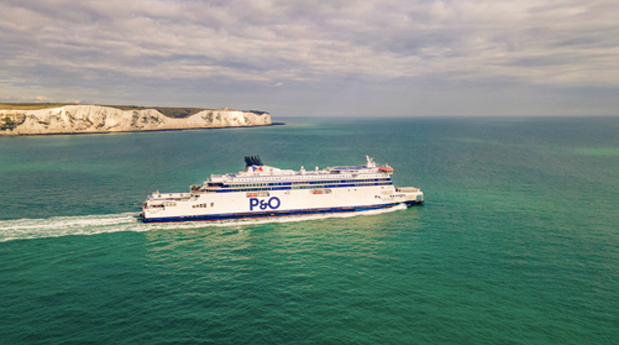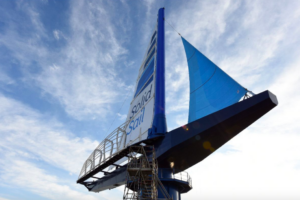P&O to be banned from UK routes, says Shapps

Transport secretary Grant Shapps is preparing to bar P&O Ferries from operating on UK routes unless replacement workers are paid the national minimum wage, it’s being widely reported.
Shapps has written to the company’s CEO Peter Hebblethwaite urging him to reverse cuts and pay staff the national minimum wage of £9.50.
The transport secretary is expected to take action to prevent companies being able to use fire and rehire tactics. He is expected to hold talks with rival operators of P&O Ferries in a move to avoid confusion at UK ports over the Easter holidays and, according to The Mirror, will meet with DFDS and Stena Line today (28Mar22) to understand if they will be able to fill the hole left by P&O.
An aide to the transport secretary told the Financial Times that Shapps “will tell Hebblethwaite that if he doesn’t perform a U-turn, we will force him to do it anyway. We hope they will see reason and step back. We will make it impossible for ferry companies to operate from UK ports without paying the national minimum wage,” which, if it becomes law, effectively ‘dooms’ P&Os plan to use low-paid workers.
The action comes after 800 workers were sacked without notice and Hebblethwaite later admitted the company had deliberately broken the law and would do it again.
“P&O has produced a blueprint for rogue employers to slash wages and the Tories have done nothing to stop them,” says shadow transport secretary, Louise Haigh.
According to The Guardian, more demonstrations against the sackings are planned for this week, with the RMT union turning its attention to P&O Ferries’ supply chain, including the maritime agencies involved with recruiting workers. The union said there would be a protest outside the Glasgow offices of Clyde Marine Recruitment, which describes itself as Europe’s leading supplier of marine personnel, this morning (28Mar22).
Demonstrations took place in Liverpool, Dover and Hull last Saturday (26Mar22).
A P&O Ferries source told the PA news agency that it conducted a study last year into options, which calculated it would cost £309m to keep the business going through a consultation period of at least three months, costs that would have seriously undermined the business and possibly dealt a fatal blow.
The RMT’s general secretary, Mick Lynch, has called for the government to seize the P&O fleet, and for crew who were sacked to be reinstated.
“There will be more protests, more campaigning and more political pressure this week as we ratchet up the fight and harness the public anger at the jobs carve-up on our ferries,” says Lynch. He says there is “nowhere to run and nowhere to hide” for those involved.
The union’s national secretary, Darren Proctor, says ferry operators paying below minimum wage had “contributed to the decimation of UK seafarers” and higher wages would create more opportunities for UK workers.
However, he told BBC Radio 4’s Today programme customers may have to pay higher prices as a result.
“If you want decent terms and conditions and decent service and safe vessels then you might have to pay a little bit more,” he says.
P&O Ferries says it will be “unable to run some of our services over the next few days”. As of Sunday afternoon (27Mar22), sailings from Dover to Calais were cancelled up to and including Thursday 31 March, and those between Larne and Cairnryan in Scotland remained suspended.
The government is subjecting all P&O ferries to inspections before allowing them back into service, says The Guardian. One ship, the European Causeway, was impounded in Northern Ireland on Friday (25Mar22) by the Maritime and Coastguard Agency after being deemed “unfit to sail” after an inspection found “failures on crew familiarisation, vessel documentation and crew training”.










